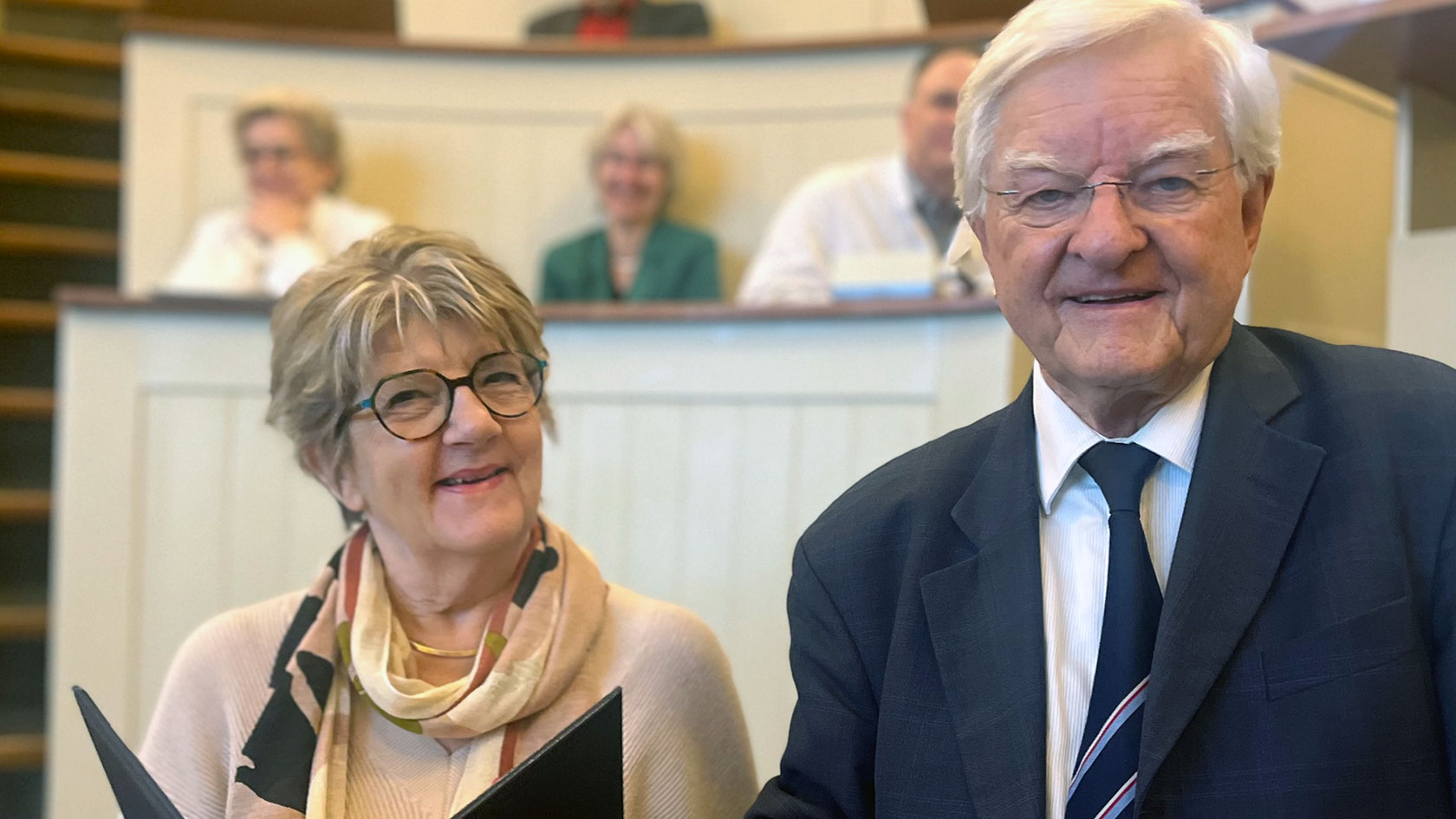Eminent Neuroscientist and Violinist Honored

Inflammatory diseases of the nervous system, such as multiple sclerosis or myasthenia, are often associated with severe limitations for those affected, despite improved treatment methods. In both cases, these are autoimmune diseases in which antibodies of the immune system are directed against the body’s own structures. This year’s Koetser award winner, Klaus Toyka, has made a significant contribution to a better understanding of the immunological basis of these inflammatory diseases of the nervous system through his combination of clinical practice and research.
Klaus Toyka began his clinical training at the Department of Neurology at the Technical University Munich (TUM). During a research stay at Johns Hopkins University in Baltimore, USA, he achieved a scientific breakthrough: together with his team, he was able to clarify the disease-causing role of autoantibodies in myasthenia gravis. In this disease, the transmission of signals between nerve and muscle cells is impaired and leads to muscle weakness.
Toyka continued his clinical and scientific work at TUM. With the discovery of pathogenic monoclonal antibodies that can trigger neuritis in humans, he achieved another clinically significant scientific success.
In 1989, Klaus Toyka was appointed to the Chair of Neurology and Director of the Neurological University Clinic in Würzburg. Despite the associated administrative tasks, he continued his scientific work at a high level and with the same intensity. International research collaborations developed, including with the Zurich scientist Ueli Suter, which resulted in notable publications.
Gifted violinist
Klaus Toyka is not only an important scientist and neurologist but also successful in other areas. He has published several cookery books, which have also been well received in specialist circles. He also plays the violin at a professional level. He has given several concerts as a soloist with the German orchestra of neurologists. Even after his retirement, Klaus Toyka continues to support experimental and clinical research in a variety of ways.